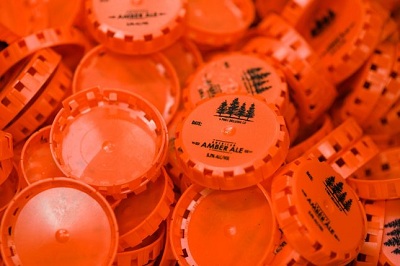Starting a business in a completely new sector, with a product that competes with massive established players, and that boasts sustainability as a key selling point is a brave move. Nonetheless Dresden Optics is giving it a go – and helping people’s eyesight in the process. By Jeremy Torr.
McDermott and Jeffreys both wear glasses - and make them sustainable too. Courtesy Dresden
Sydney, January 10, 2018. It’s not often you hear the phrase: “We’re the manufacturers, after all, so the buck stops with us,” from a retail company. But Sydney based Dresden Optics is serious about responsible manufacturing, sustainability – and providing value.
The company, founded in 2015, came from the founders’ - Bruce Jeffreys and Jason McDermott – mutual frustration with the price and durability of existing optical eyewear provision. And the unsustainable business models that produce them.
“The majority of glasses (sold today) are manufactured in low wage countries and are totally unrecyclable,” says Jeffreys, who used to buy multiple cheap spare pairs when he visited overseas countries. “So we are developing a system where we can make something that's high quality, sustainable, and uses local intellectual property and technology to do it," he adds.
Poor outlook
The standard pair of glasses most of us might buy in a high street optician’s could take up to 240 individual processes to make, be completely unrecyclable, and made principally from materials designed to look ‘smart’ rather than protect or wear for a long time, say the company’s founders.
“Our approach is to look at glasses from a medical necessity perspective, rather than being treated like a fashion accessory,” said Jeffreys in a recent interview. “And we (also) want to lower the price from a few hundred dollars to as low as $50 or so.”
Beer keg lids and fishing net wastes all help keep landfills down. Courtesy Dresden.
The aim is to make tough, good-looking glasses that are affordable for people in developing nations or low socio-economic circles, says the company. The frames – just four sizes in a single recognisable style – are moulded from a recycled/new nylon mix and come with a lifetime warranty.
“And if they do break, we ask you to send them or bring them back so we can see what went wrong, address the problem – and then recycle the materials,” say the founders. The buck does indeed stop with them.
Wiederverwertung
But the approach they use – based on the Germans word ‘wiederverwertung’ – is also sustainable through its design. The core company ethic is based on the translation, which means “again finding value”.
“It’s about lowering our environmental impact with thoughtful design and manufacturing decisions,” say the founders. For example, most glasses use a metal hinge and as most wearers well know, that is what always breaks first.
Dresden’s no-metal hinge design means recycling is easy. Courtesy Dresden/Vert
“We knew that avoiding metal (hinges) would be better, and would also help us keep CO2 emissions from our manufacturing process on the low side. But we were blown away when we found out our fully nylon frame and pin design results in a staggering 99% reduction in CO2 emissions, compared with traditional metal-hinged glasses,” they explain. The use of plastic hinges integrated into the frame and arms locked in place with a plastic ‘pin’ also means no little screws, no fiddly hinges or wobbly rusty rivets that just end up in the bin when they come loose.
Dresden is also proud of its zero-waste, closed-loop manufacturing system. Instead of throwing away off-cuts and moulding sprues, the company recycles its plastic manufacturing waste by cutting it up (granulating it) and feeding it back in to the supply line. “So far we’ve saved 436kg of plastic from going into landfill. At 25g per Dresden frame, that’s more than 17,000 frames,” they say. And that’s without considering the weight of the glasses themsleves. Typical frames weigh around 50g; Dresden frames weigh less than half that, making them not just comfortable, but less greedy on finite resources. As well as 100% recyclable. And because they are tough, you only need a felt sleeve to carry them in; no need for a heavy, bulky glasses case.
Even the box is recyclable. Courtesy Dresden.
If you demand a box, all Dresden packaging is made with high recycled content cardboard and is fully recyclable. “All these things save money, and waste,” says the company. “And all are much better for our planet.”
Round and round glasses
Better still, Dresden is looking to source some of its raw materials from plastics that might otherwise end up in landfills. They already use recycled beer keg lids, and are looking at developing a process for using waste nylon netting used in fishing gear.
“We start with ultra-durable, lightweight and recyclable nylon, or a recyclable material like beer keg lids as well as granulised wood, discarded fishing nets and waste from the production of bank notes to make our glasses,” they say. “We choose the materials we re-use very carefully, to make sure they give us the desired structural stability in the final product.”
“And we’re on a roll. There are new materials to test, new colours to create, and we’ve already expanded to Canada and New Zealand,” say Jeffreys and McDermott. “It’s our mission to bring quality, fashionable, sustainable prescription glasses to people around the world, and we’re excited about achieving it.”



